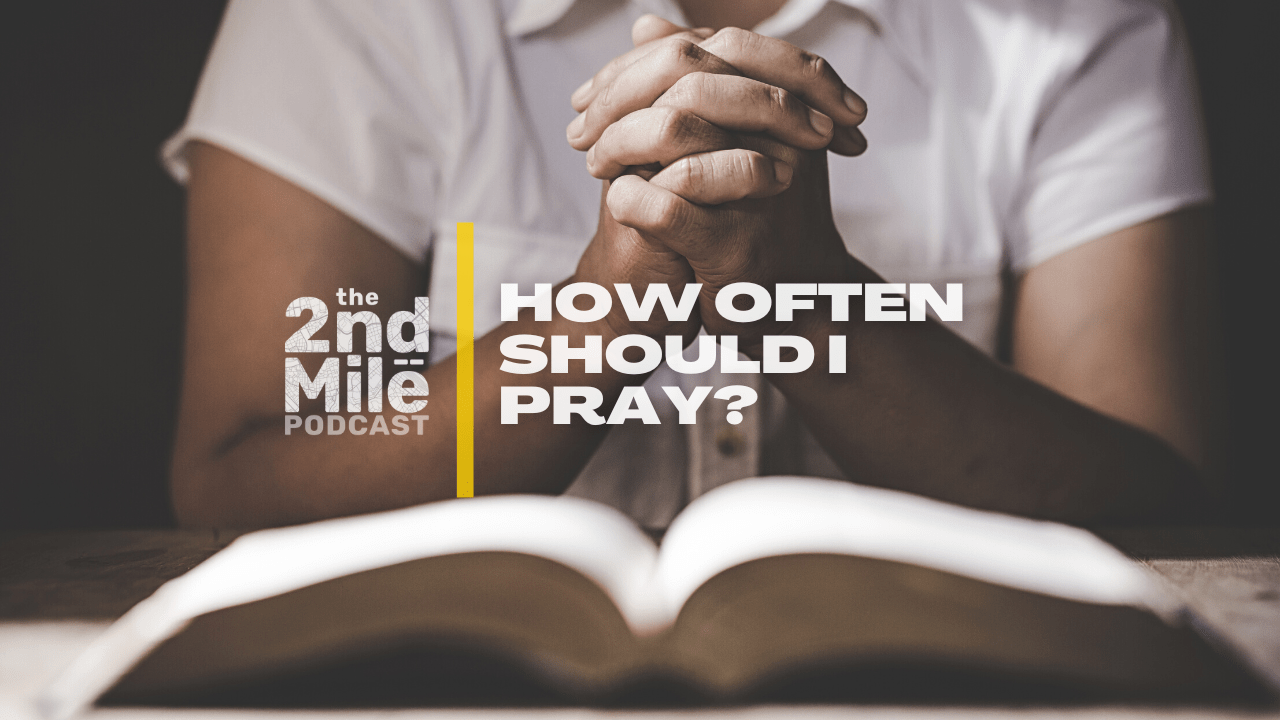Praying is an edifying practice that transcends mere habit; it represents an opportunity to engage in a profound spiritual dialogue with the Divine. Within the Bahá’í Faith, prayer is not simply a routine obligation but a vital component of one’s spiritual existence. Hence, the exploration of how often one should pray brings us to the heart of the Bahá’í teachings. The essence of mindfulness in prayer underscores a meaningful engagement with the Divine, fostering an atmosphere conducive to spiritual nourishment and growth.
The Bahá’í teachings posit that prayer acts as a bridge between humanity and God. Through prayer, individuals seek to align their will with that of the Almighty, serving as a testament to their awareness and devotion. In this discourse, various types of prayer are explored, illustrating the frequency and fervor that can constructively vary according to individual circumstances. This examination will outline not only the calls for regular prayer but also the unique significance of personal contemplation and communal supplication.
At the core of Bahá’í practice lies the acknowledgment of individual expression. The Bahá’í writings delineate several types of prayers: obligatory prayers, devotional prayers, and spontaneous supplications. Each serves a distinct purpose, encouraging a structured yet flexible approach to prayer. Obligatory prayers are mandated forms that all Bahá’ís are encouraged to recite daily. These prayers foster consistency and formality in one’s spiritual life, thereby reinforcing the discipline that often accompanies the act of devotion.
There are three different obligatory prayers provided in Bahá’í scripture, each allowing for variations in frequency and length. Additionally, the individual is encouraged to choose one of these prayers to recite daily, acknowledging that adherence to this practice instills a rhythm of divine connection. The flexibility offered in the selection of prayers highlights the Bahá’í emphasis on personal choice within a spiritual framework, allowing practitioners to cultivate their unique relationship with God.
Devotional prayers serve as another dimension of the Bahá’í spiritual practice. These prayers, often selected from the writings of Bahá’u’lláh and other central figures of the Faith, are designed to inspire reflection and gratitude. Used independently or collectively, they can be recited at any time, making them a versatile tool in the journey of spiritual evolution. Whether performed alone in the quiet of one’s home or shared at a communal gathering, devotional prayers augment the experience of seeking the Divine. Regular engagement with devotional prayers deepens an individual’s understanding of the teachings and principles of the Faith.
Moreover, spontaneous supplications represent an organic method of engaging with the Divine, where individuals express their thoughts and desires in unstructured forms. This personal dialogue allows for an authentic outpouring of the soul’s deepest yearnings and aspirations. The Bahá’í Faith advocates for such spontaneity, recognizing that true prayer does not necessitate formal structure. In moments of despair, joy, or reflection, such unfettered expressions can become powerful conduits for spiritual growth.
In contemplating how often one should pray, it is crucial to recognize the qualitative aspect that underpins prayer practice rather than merely focusing on quantity. While the obligatory prayers insist on a daily commitment, the additional forms of prayers can be determined by individual circumstances and personal conviction. The essence of spiritual dialogue lies not in the frequency of words uttered, but in the sincerity of our hearts at the moment of communion.
Furthermore, the Bahá’í Faith supports the integration of prayer into daily life beyond the ritualistic recitation. An acknowledgment of the Divine in everyday interactions cultivates an inner peace and fosters a heightened sense of awareness. Engaging with God in mundane activities transforms these moments into spiritual reflections. This concept aligns seamlessly with the Bahá’í principle of the oneness of humanity, where prayers for unity, peace, and justice serve to enrich one’s connection to others as well as the Divine.
The communal aspect of prayer, particularly in the Bahá’í community, further amplifies the significance of collective supplication. Gathering for prayer can establish a spirit of solidarity, promoting healing and mutual support. The shared experience of prayer amidst friends and family reinforces bonds while simultaneously enhancing the spiritual atmosphere. Regular participation in such gatherings serves as both a reminder of one’s commitment to the Faith and an encouragement to seek spiritual elevation collectively.
Ultimately, the query of how often one should pray finds an expansive answer within the Bahá’í teachings. It invokes a deepened understanding of prayer’s multifaceted nature and the invitation to engage actively in a spiritual dialogue with the Divine. Each individual is encouraged to explore these dimensions through obligatory prayers, devotional expressions, and spontaneous supplications, allowing for the definition of personal practices that resonate with their faith journey.
In conclusion, prayer in the Bahá’í Faith emerges as an essential framework for spiritual development. It facilitates a relationship with God and embodies the core tenets of the Faith. Whether through structured rituals or personal dialogues, the act of praying serves as a tangible expression of one’s inner spiritual quest, challenging adherents to cultivate an unwavering connection with their Creator. The question of frequency thus becomes one of quality and intention, positioning prayer as a lifeline to the Divine, comprehensively connecting the individual to their spirituality and the community around them.
